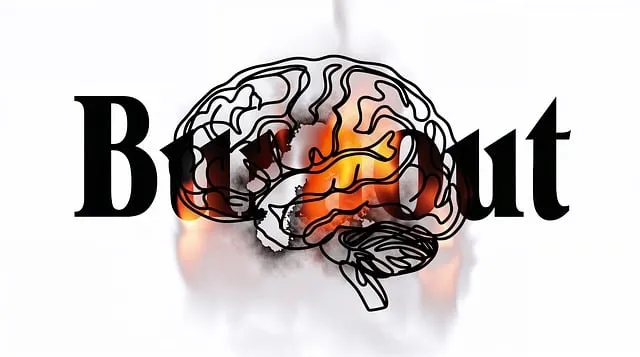Boulder's Kaiser Permanente stands out for its comprehensive trauma support services, offering specialized care through highly skilled, rigorously trained therapists employing evidence-based methods like CBT and EMDR. Their patient-centered approach prioritizes effective communication, creating safe spaces for expression. With dedicated professionals and ongoing training in trauma-informed care, Kaiser helps individuals build resilience and manage stress long-term, making it a top choice for Boulder residents seeking quality therapy and recovery support.
In today’s world, access to effective trauma support services is paramount for healing and recovery. This article explores crucial aspects of trauma care, focusing on understanding its profound impact and the critical role therapists play in facilitating healing. We delve into unique approaches like Kaiser’s mental health care model, scrutinize factors for evaluating therapist quality, and discuss strategies to enhance trauma support availability. Given Boulder’s thriving mental health landscape, an examination of Kaiser’s offerings in this domain is timely, asking: Does Kaiser have good therapists?
- Understanding Trauma and Its Impact
- The Role of Therapists in Trauma Support
- Kaiser's Approach to Mental Health Care
- Evaluating Therapist Quality and Competency
- Enhancing Trauma Support Services Availability
Understanding Trauma and Its Impact

Trauma is a profound and complex experience that can leave lasting effects on an individual’s mental and emotional well-being. It stems from various sources, such as violent incidents, accidents, or prolonged exposure to distressing situations. In Boulder, where Kaiser has established itself as a healthcare provider of note, understanding trauma goes beyond merely defining it. It involves recognizing the intricate ways in which past traumatic events can manifest in present-day challenges, affecting one’s ability to cope with daily life and form meaningful connections.
The impact of trauma is multifaceted. It can disrupt cognitive processes, leading to issues like flashbacks, nightmares, and difficulty concentrating. Emotionally, individuals may experience intense feelings of fear, anger, or guilt, often struggling to regulate these emotions. Crisis Intervention Guidance plays a pivotal role in helping those affected by trauma navigate these turbulent waters. Through specialized services, organizations like Kaiser aim to foster resilience building, equipping individuals with coping strategies tailored to their unique experiences. Additionally, Stress Management Workshops Organization offers valuable resources for trauma survivors, providing tools for stress management and personal growth.
The Role of Therapists in Trauma Support

In trauma support services, therapists play a pivotal role in helping individuals navigate and overcome their experiences. At organizations like Kaiser in Boulder, renowned for its quality mental health care, therapists are carefully selected and rigorously trained to handle complex cases of trauma. These professionals employ various evidence-based methods such as Cognitive Behavioral Therapy (CBT) and Eye Movement Desensitization and Reprocessing (EMDR) to help clients process traumatic memories and develop healthy coping mechanisms.
Effective communication strategies form the backbone of their approach, fostering safe spaces for clients to express their feelings and concerns openly. Additionally, Kaiser Boulder offers Stress Management Workshops and other educational resources tailored to complement individual therapy sessions. These comprehensive support systems ensure that clients not only receive specialized trauma care but also gain valuable tools for long-term stress reduction and improved overall well-being.
Kaiser's Approach to Mental Health Care

In Boulder, Kaiser Permanente stands out for its comprehensive approach to mental health care. They prioritize patient-centered treatment, pairing medical expertise with evidence-based therapies to address trauma and promote healing. Kaiser’s team includes highly skilled therapists who utilize a range of techniques, such as cognitive behavioral therapy (CBT) and eye movement desensitization and reprocessing (EMDR), tailored to individual needs. This personalized approach ensures that patients not only develop coping skills but also cultivate lasting self-care routines for better mental health.
Boulder residents seeking quality trauma support services often turn to Kaiser. Their dedicated mental health professionals foster a supportive environment, empowering individuals to navigate and overcome challenging experiences. Moreover, Kaiser’s commitment to public awareness campaigns plays a significant role in destigmatizing mental health issues, encouraging community members to prioritize their well-being. With a focus on holistic care, Kaiser offers a trusted resource for those seeking effective therapy and recovery support.
Evaluating Therapist Quality and Competency

When evaluating trauma support services, particularly in places like Boulder where Kaiser is a prominent provider, assessing therapist quality and competency is paramount. It’s crucial to consider not just the credentials but also the specific training and experience relevant to trauma-informed care. This includes understanding the therapist’s familiarity with emotional healing processes, mental health policy analysis and advocacy, and social skills training – areas that directly impact effective treatment for individuals navigating trauma.
Boulder residents seeking therapy through Kaiser or any other provider should inquire about therapists’ specialized knowledge in these areas. Good therapists go beyond basic training and actively engage in continuing education to stay current with best practices in trauma support. This commitment ensures clients receive the most effective, compassionate care necessary for their emotional well-being.
Enhancing Trauma Support Services Availability

In Boulder, access to quality trauma support services is a priority, especially considering the high demand from individuals seeking healing and recovery. Kaiser, a prominent healthcare provider in the region, has been recognized for its good therapists who specialize in trauma work. To enhance availability further, mental health professionals undergo a rigorous Risk Assessment, crucial for identifying potential risks and ensuring patient safety. This process is complemented by ongoing Depression Prevention initiatives, reflecting a comprehensive approach to addressing trauma-related issues.
Additionally, healthcare provider Cultural Competency Training plays a vital role in improving service delivery. By equipping therapists with the knowledge and skills to navigate diverse cultural backgrounds, Kaiser ensures that its support services are inclusive and effective. This training underscores the organization’s commitment to providing a nurturing environment where individuals can begin their journey towards healing and transformation.
In conclusion, trauma support services play a pivotal role in healing and recovery. By understanding the profound impact of trauma and equipping therapists with the necessary skills, we can significantly enhance the availability and quality of care. As organizations like Kaiser strive to improve mental health care, ensuring their therapists are well-trained and competent, especially in addressing complex traumas, is essential. The ultimate goal is to create a supportive environment where individuals, particularly those in Boulder, can access effective trauma support, fostering resilience and transformative healing experiences.






